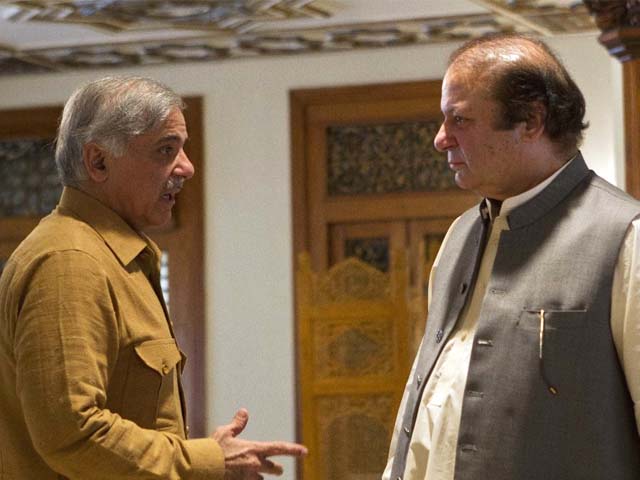
The 24th amendment does not benefit anyone but Nawaz Sharif
The proposed legislation raises issues which make it questionable on a legal as well as moral basis.
A few days ago, a blog published on this website argued that the proposed 24th amendment by the government was the correct political and legal step in the current environment. Firstly, the author claimed that due to the exceptionally high stakes in the current Panama leaks proceedings, it is necessary that Prime Minister Nawaz Sharif is allowed a chance to appeal in the case of an unfavourable decision. Secondly, it was asserted that the 24th amendment, all political considerations aside, was a legal necessity to ensure that the requirements of justice and a fair trial were guaranteed. I respectfully disagree on both accounts.
It is pertinent to underline here, as the writer of the blog does so himself, that the Pakistan Muslim League-Nawaz’s (PML-N) proposal for the 24th amendment is incentivised purely by the Sharif family’s self-interest in the legislation, as the same suggestion was previously opposed by the party during the Pakistan Peoples Party (PPP) era. However, the premise that “many steps in politics are taken for self-preservation but may still have good normative implications” is fundamentally flawed.
The inference here is that it is acceptable for public benefit to become merely incidental to the larger, personal purpose behind a legislation. Much worse, it further insinuates that the rights of everyone who have hitherto been subject to a Supreme Court judgment following a suo moto or petition are second to the rights of the ruling family.
Are we to accept that, from now on, amends are only made when the ruling family itself is threatened by the inadequacy of the law in a particular area?
Furthermore, the proposed legislation raises issues which make it questionable on a legal as well as moral basis. Article 10 of the Constitution of Pakistan protects the right of a citizen to a fair trial, and it is true that the conclusive nature, due to the absence of a right to appeal, of a Supreme Court’s decision whilst acting as a first instance forum is principally at a cross purposes with the mentioned article. However, fixing said conundrum by simply allowing a right to appeal in front of a larger bench will serve only to contradict the basic structure of our judicial system, which upholds the supremacy of the Supreme Court as the last instance court. It will essentially render any Supreme Court bench subordinate to a larger bench. This could have had long winded and dangerous implications for the internal dynamics of the Supreme Court, whereby a bench comprising of the senior most judges, including the chief justice himself, can be overruled by a separate bench of junior justices. Naturally, this would give rise to power struggles and division within the institution.
Perhaps a better and less institutionally divisive way of dealing with the issue would be amending Article 184(3) to the effect that the Supreme Court may only allow leave for a constitutional petition where all relevant modes of relief, especially the High Court jurisdiction under Article 199 have been exhausted. Doing so will maintain the appellate function of the Supreme Court, enabling it to maintain its authority as the final legal resort of the land. With the more scant use of the suo moto action since Iftikhar Chaudhry, this will effectively address the presently more pressing issue of constitutional petitions made to the Supreme Court in the first instance.
However, a more thorough amendment to the judicial system, envisaged to wholeheartedly address the issue of appeal, even in the case of suo motos, could look into the possibility of establishing constitutional courts similar to the ones in many European jurisdictions. These courts could singularly be allowed monopoly over issues of a constitutional nature, arising through petition or suo moto, with decisions being subject only to an appeal to the Supreme Court. This way, any citizen, including the prime minster who has been subject to an unfavourable decision at first instance under a suo moto or constitutional petition, would be allowed a right to appeal in accordance to Article 10A, without receding the authority of the Supreme Court.
Eventually, whatever approach is adopted in addressing the issues of justice and fairness under Article 184(3) must be decided upon after an in-depth deliberation of its potential long term effects and underpinned by consultations with relevant legal and political stakeholders on the issue. Ad hoc measures, motivated by personal considerations rather than public interest, must be condemned unanimously by political parties as well as the media and legal fraternity. Otherwise, the passing of the 24th amendment in current circumstances will go towards setting a dangerous precedent through which the parliament can enact any law of any kind by simply citing an imagined public benefit, even if the real motive behind the move clearly lay elsewhere.




COMMENTS
Comments are moderated and generally will be posted if they are on-topic and not abusive.
For more information, please see our Comments FAQ